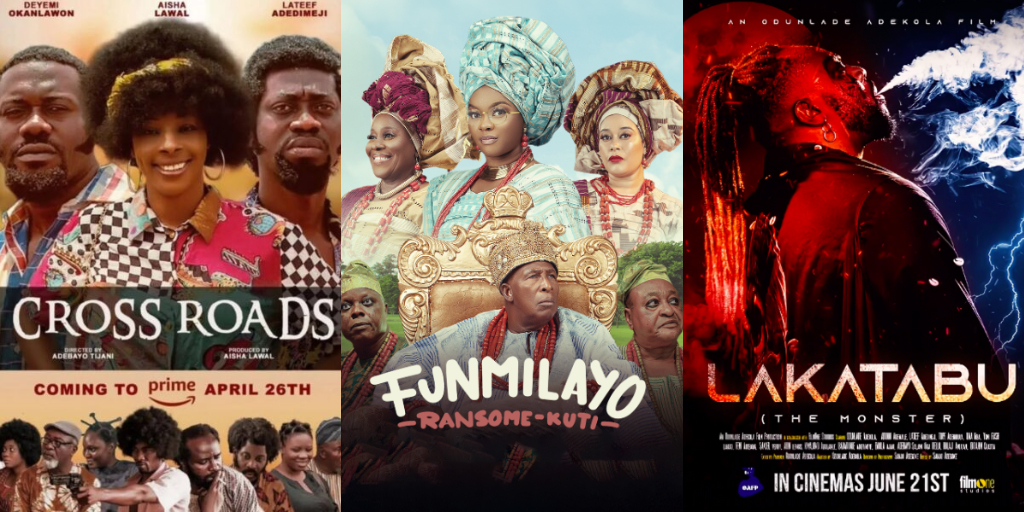Celebrating Female Filmmakers in the Yoruba Movie Industry

The Yoruba movie industry, a dynamic branch of Nollywood, has grown into a powerful force in African cinema. While male filmmakers have traditionally dominated the scene, female filmmakers are making significant strides in the industry. Their impact is evident in the themes they explore, the characters they create, and the fresh perspectives they bring to storytelling. This article celebrates the outstanding contributions of female filmmakers who are reshaping Yoruba Movies and inspiring the next generation of storytellers.
The Rise of Women Behind the Camera
In the early years of Yoruba cinema, women were often confined to on-screen roles as actresses. However, over the last few decades, there has been a noticeable shift. Women have increasingly stepped behind the camera as directors, producers, screenwriters, and editors. Their presence has brought diversity and depth to Yoruba Movies, allowing for more nuanced narratives that reflect the complexity of the Yoruba experience, especially from a woman’s point of view.
Trailblazing Female Directors and Producers
One of the most notable figures in the Yoruba film industry is Tunde Kelani’s protégé, Tope Oshin. Though she works in both English and Yoruba language films, her influence on Yoruba Movies cannot be overstated. She has directed numerous films and television projects that center strong female characters and explore gender issues in contemporary Yoruba society.
Another major name is Funke Akindele, widely recognized for her hit series and films. Starting as an actress, Funke transitioned into directing and producing, where she found enormous success. Her works often combine humor with social commentary, addressing issues such as women’s empowerment, family, and class struggles in Yoruba communities. With titles like “Omo Ghetto” and “Jenifa’s Diary,” she has proven her storytelling prowess and her ability to connect with both urban and rural audiences.
Biodun Stephen is another force to reckon with. Known for her compelling romantic dramas and family-centered films, Stephen creates Yoruba Movies that highlight the inner lives of women, their dreams, relationships, and societal roles. Her works offer a refreshing deviation from the male-dominated narratives that once ruled the industry.
Themes Explored by Female Filmmakers
One of the key ways female filmmakers are changing Yoruba Movies is through the themes they choose to explore. While traditional films often focus on themes such as royalty, witchcraft, and revenge, female directors are pushing the boundaries. They delve into subjects like infertility, domestic violence, education for girls, polygamy, and entrepreneurship. These themes resonate with a broader audience and address real-life issues that affect Yoruba women daily.
For instance, in many of her films, Kemi Afolabi sheds light on the challenges faced by widows and single mothers. Her storytelling brings attention to societal expectations placed on women and the stigmas they endure. Similarly, movies by Mercy Aigbe often feature strong female leads who rise above adversity, promoting empowerment and resilience.
Impact on Representation and Identity
Female filmmakers in the Yoruba movie industry have played a crucial role in changing how women are represented on screen. Gone are the days when women were only portrayed as victims or villains. Today’s Yoruba Movies, shaped by women, show complex, independent, and multifaceted female characters who lead the narrative rather than just support it.
These films provide an opportunity for Yoruba women to see themselves represented in diverse roles—leaders, entrepreneurs, mothers, rebels, and survivors. This improved representation contributes to a more inclusive and authentic portrayal of Yoruba culture and identity.
Challenges Faced by Female Filmmakers
Despite the progress, female filmmakers in the Yoruba movie industry still face numerous challenges. These include limited access to funding, gender discrimination, and societal expectations that discourage women from pursuing leadership roles in film. Many female directors also juggle multiple responsibilities, balancing family life with the demands of filmmaking.
However, these challenges have not stopped them. Many have formed networks to support one another and mentor upcoming talent. Platforms like the Female Filmmakers’ Forum and various film festivals provide opportunities for exposure and collaboration.
The Influence of Female Filmmakers on Industry Standards
Another noteworthy impact of female filmmakers is the improvement in storytelling quality and production standards. As more women assume roles in scriptwriting and directing, there’s been a notable shift toward deeper character development, emotional depth, and socially responsible narratives.
Their focus on professionalism, organization, and attention to detail has also influenced industry standards. From the use of high-quality cinematography to authentic costume designs and culturally accurate storytelling, Yoruba Movies made by women often reflect a commitment to excellence.
Mentorship and Legacy
Many of today’s leading female filmmakers are actively mentoring the next generation. They hold workshops, sponsor film training programs, and provide internships on their film sets. These efforts are essential for ensuring that the progress made by today’s pioneers is sustained and expanded in the future.
Filmmakers like Iyabo Ojo and Dayo Amusa are not only successful actresses and producers but also mentors to young women entering the industry. Through their leadership, they are building a legacy that encourages inclusivity and creative freedom for women in Yoruba cinema.
Audience Reception and Global Reach
The audience’s response to films directed by women has been overwhelmingly positive. Viewers appreciate the authenticity and emotional resonance of the stories. Many of these films have gone viral on streaming platforms and have received critical acclaim at film festivals, both locally and internationally.
Yoruba Movies made by women are reaching global audiences, especially among the African diaspora. Platforms like YouTube, Netflix, and IrokoTV have made it easier for these films to cross borders and cultures. As a result, the voices of female Yoruba filmmakers are influencing how African cinema is viewed worldwide.
Conclusion
The Yoruba movie industry owes much of its recent evolution to the contributions of female filmmakers. These women are breaking barriers, changing narratives, and shaping the future of Yoruba Movies with vision, courage, and creativity. As they continue to push the boundaries of storytelling and representation, they ensure that the voices and experiences of Yoruba women are not only heard but celebrated. Their journey serves as an inspiration to aspiring filmmakers everywhere and marks a pivotal chapter in the ongoing story of African cinema.
Ask ChatGPT






